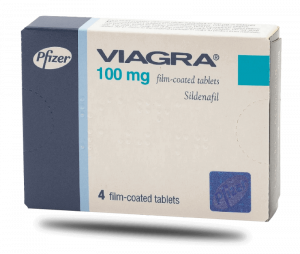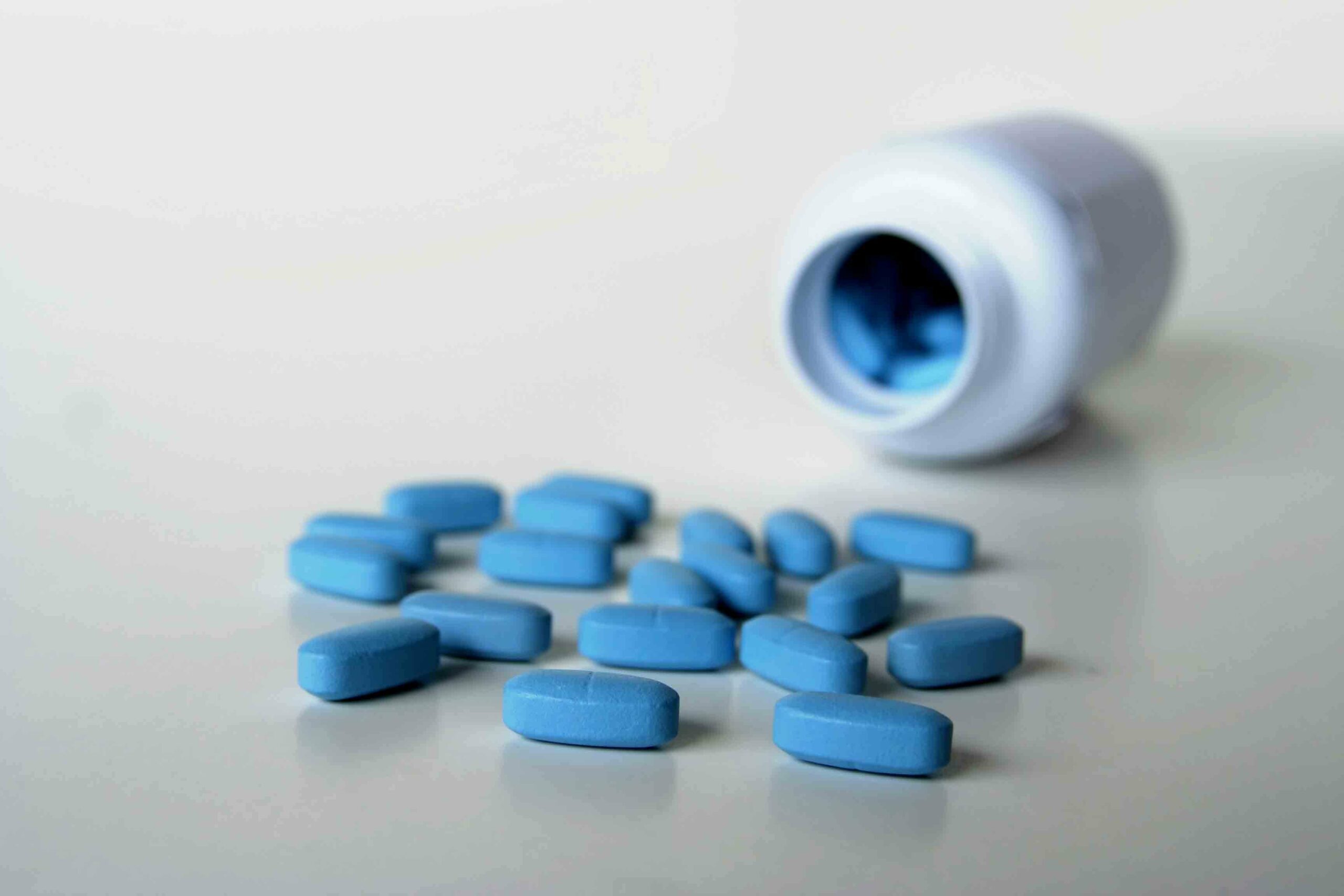What is Viagra?
When and how Viagra was developed
Twenty years ago, the Food and Drug Administration’s approval of a little blue pill changed the sex lives of millions of men and women.
Pfizer, in 1991 began its research for some chemical compounds belonging to the pyrazolopyrimidine class, aiming to find a revolutionary drug to treat heart problems, like angina or chest pain. During clinical trials it was found that the drug had insignificant effect on angina. However, an unexpected side effect of this medicine was noticed by one study nurse as a side effect that was quite pleasant for all the male patients treated for heart problems
Pfizer then stopped the research on Sildenafil as heart medication and initiated investigation on it for Erectile Dysfunction. Soon Viagra was greenlighted for use by the FDA on March 27, 1998 and since then it has been prescribed for more than 64 million men worldwide and nowadays it is released as an over the counter medicine in UK.
“Originally, we were testing Sildenafil, the active drug in Viagra, as a cardiovascular drug and for its ability to lower blood pressure,” Dr. Brian Klee, senior medical director at Pfizer, told French news agency, AFP. “But one thing that was found during those trials is that people didn’t want to give the medication back because of the side effect of having erections that were harder, firmer and lasted longer.”1
Maybe the most important role in discovering Viagra belongs to that nurse, that had reported her participants’ reactions to Sildenafil as adverse events. When we come to think that if the nurse hadn’t reported the strange adverse events her patients were experiencing, the world may never have had Viagra…
Click HERE to View Viagra Prices > >
Marketing and Sales
At the time of its approval, Viagra had the fastest initial sales growth following its launch of any prescription product, reaching 2008 sales of close to $2 billion. Pfizer promoted Viagra and erectile dysfunction awareness via direct-to-consumer (DTC) advertising, which prompted men to seek medical advice and a prescription from their doctors.
For many men, the stigma and embarrassment of talking to their doctor about erectile dysfunction has declined since the introduction of Viagra. Since receiving MHRA approval in 1998, Viagra has been prescribed more than 22 million times in the U.S. alone and is available in 90 other countries, according to manufacturer Pfizer. In 2000, Viagra sales accounted for 92% of the global market for prescribed Erectile Dysfunction pills. The number of items prescribed in the community in England for the Erectile Dysfunction drug sildenafil has nearly tripled in a decade. There were 2,958,199 prescription items for Sildenafil in 2016, compared with 1,042,431 in 2006.
Viagra is one of the most popular drugs on the market today, earning manufacturer Pfizer over one billion dollars a year.
 What is Erectile Dysfunction? Is it bad?
What is Erectile Dysfunction? Is it bad?
The primary indication of Viagra is the treatment of Erectile Dysfunction (ED). A man is considered to have ED if he regularly finds it difficult getting or keeping a firm enough erection to be able to have sex, or if it interferes with other sexual activity.
The definition of Erectile Dysfunction can be different for every guy. Organic causes are predominant for the onset of Erectile Dysfunction, such as trauma of the penis, vascularization, and other pathologies such as Diabetes mellitus, renal failure and so on.
Risk factors for developing Erectile Dysfunction include age, diabetes, hypertension, obesity, lack of exercise, dyslipidemia, smoking, depression, lower urinary tract symptoms, and pelvic surgery.
So, suffering from Erectile Dysfunction is a serious condition with a markedly negative impact on quality of life.
What causes erectile dysfunction?
Age alone is not a risk factor for ED, but underlying health issues such as diabetes, high blood pressure, obesity, high cholesterol, chronic alcohol or drug abuse, certain medications, and injuries can lead to impotence. Any condition that may restrict blood flow to veins over time, like smoking, can lead to ED.
Medical conditions like Parkinson’s disease or Peyronie’s disease (scar tissue build-up in the penis) may cause erectile dysfunction. Mental health issues can take their toll, too–depression or stress can result in loss of libido. Erection failures may occur repeatedly in men who experience performance anxiety due to erectile dysfunction.
Many medications have impotence or sexual dysfunction listed as a side effect. A medication review should be performed by a healthcare provider to determine if any prescription drug treatment may be contributing to symptoms. Medications such as antidepressants, blood pressure drugs, certain antihistamines, antipsychotics, drugs used for benign prostatic hypertrophy (BPH), and anti-HIV drugs may lead to erectile dysfunction.
Fast facts on erectile dysfunction:
- Causes are usually medical but can also be psychological;
- Organic causes are usually the result of an underlying medical condition affecting the blood vessels or nerves supplying the penis;
- Numerous prescription drugs, recreational drugs, alcohol, and smoking, can all cause ED.
Treatment of erectile dysfunction:
As a rule, ED can be treated successfully with current treatment options, but it cannot be cured. The only exceptions are psychogenic ED, post-traumatic arteriogenic ED in young patients, and hormonal causes (e.g. hypogonadism and hyperprolactinaemia), which potentially can be cured with specific treatment. Most men with ED will be treated with therapeutic options that are not cause specific. This results in a structured treatment strategy that depends on efficacy, safety, invasiveness and cost, as well as patient preference.
Five natural ways to overcome erectile dysfunction
- Walk. According to one Harvard study, just 30 minutes of walking a day was linked with a 41% drop in risk for ED.
- Eat right. In the Massachusetts Male Aging Study, eating a diet rich in natural foods like fruit, vegetables, and fish decreased the likelihood of ED.
- Get slim and stay slim. A trim waistline is one good defence: a man with a 42-inch waist is 50% more likely to have ED than one with a 32-inch waist. Losing weight can help fight erectile dysfunction, so getting to a healthy weight and staying there is another good strategy for avoiding or fixing ED. Obesity raises risks for vascular disease and diabetes, two major causes of ED.
- Pay attention to your vascular health. High blood pressure, high blood sugar, high cholesterol, and high triglycerides can all damage arteries in the heart (causing a heart attack), in the brain (causing a stroke), and leading to the penis (causing ED).
- Move a muscle, but we’re not talking about your biceps. A strong pelvic floor enhances rigidity during erections and helps keep blood from leaving the penis by pressing on a key vein. In a British trial, three months of twice-daily sets of Kegel exercises (which strengthen these muscles), combined with biofeedback and advice on lifestyle changes: quitting smoking, losing weight, limiting alcohol, worked far better than just advice on lifestyle changes.
Erectile dysfunction has become an increasingly common complaint that affects 140 million men worldwide.1
How does Viagra look?
Viagra is the citrate salt of Sildenafil, a selective inhibitor of cyclic guanosine monophosphate (cGMP)-specific phosphodiesterase type 5 (PDE5).

Viagra is formulated as blue, film-coated rounded-diamond-shaped tablets equivalent to 25 mg, 50 mg and 100 mg of Sildenafil for oral administration. In addition to the active ingredient, Sildenafil citrate, each tablet contains the following inactive ingredients: microcrystalline cellulose, anhydrous dibasic calcium phosphate, croscarmellose sodium, magnesium stearate, hypromellose, titanium dioxide, lactose, triacetin, and FD & C Blue #2 aluminium lake.
How does Viagra treat Erectile Dysfunction?
Viagra is a medicinal product, containing Sildenafil and indicated in the treatment of adult men with erectile dysfunction.
Until 1998, no effective oral therapy existed. The only treatments available were highly cumbersome or invasive, and many men found them unacceptable as solutions to the problem of achieving or maintaining a satisfactory erection. Sildenafil citrate was the first oral agent to be introduced for the treatment of Erectile Dysfunction, thanks to the researchers from Pfizer. Sildenafil is a highly selective inhibitor of PDE type 5 13and enhances NO-mediated relaxation of human corpus cavernosum. Sildenafil, by inhibiting phosphodiesterase, increases the intracellular concentrations of cyclic guanosine 3’,5’ monophosphate (cGMP), causing an amplification of the endogenous NO-cGMP signalling pathway.
It is considered a vasodilator agent, acting by increasing blood flow to the penis and thus it restores impaired erectile function.
In order for Viagra to be effective, it requires sexual stimulation in a natural setting. Viagra should be taken as needed approximately one hour before sexual activity. The recommended dose is 50 mg taken on an empty stomach as concomitant intake with food delays absorption and delays the effect of the orodispersible tablet. Based on efficacy and tolerability, the dose may be increased to 100 mg. The maximum recommended dose is 100 mg.
For patients requiring a dose increase to 100 mg, two 50 mg orodispersible tablets should be administered sequentially. The maximum recommended dosing frequency is once per day. If a dose of 25 mg is required, the use of the 25 mg film-coated tablets should be recommended.15
In order for Viagra to be effective, sexual stimulation is required.
How to take Viagra
- Always take this medicine exactly as your doctor or pharmacist has told you. The recommended starting dose is 50 mg.
- You should not take Viagra more than once a day.
- Do not take Viagra film-coated tablets in combination with Viagra orodispersible tablets.
- You should take Viagra about one hour before you plan to have sex. Swallow the tablet whole with a glass of water.
- If you feel that the effect of Viagra is too strong or too weak, talk to your doctor or pharmacist.
- Viagra will only help you to get an erection if you are sexually stimulated. The amount of time Viagra takes to work varies from person to person, but it normally takes between half an hour and one hour.
- You may find that Viagra takes longer to work if you take it with a heavy meal.
- If Viagra does not help you to get an erection, or if your erection does not last long enough for you to complete sexual intercourse you should tell your doctor.
- If you take more Viagra than you should: You may experience an increase in side effects and their severity. Doses above 100 mg do not increase the efficacy.
How long does Viagra last?
After oral ingestion, Viagra is “completely out of the system” in 20 Hours, but it’s effectiveness becomes lower after approximately 4 hours.
The effectivity of Viagra, or how long Viagra will last for, depends on a number of things. These things can include:
- Diet. Taking Viagra on an empty stomach, the effects will work more quickly. If you have a large meal with a high-fat content just before you take your Viagra pill can delay it from working as your body will be working hard to digesting the food;
- Age. Viagra’s effects can last longer the older you are. Men over 65 years of age will find that the tablet stays in their body for longer because the body’s metabolic system tends to slow down with age;
- Alcohol. If you drink alcohol this action decreases the blood flow to the penis making it harder to get and to keep an erection;
- Health problems. If you have liver or kidney problems, Viagra’s effects could last for long. This is because the tablet will take longer to be broken down by your body;
- Viagra comes in tablets ranging in dose from 25mg to 100mg. As a rule of thumb: the higher the dose, the more effective and long-lasting the effects will be, but your prescribing doctor will decide which dosage is appropriate in your situation.
Should I take caution when using Viagra?
- Yes, please consider your degree of cardiac risks associated with the sexual activity.
- If you are in the case of co-administering substances known to lead to symptomatic hypotension (blood pressure <90/50 mmHg), do not take Viagra.
- If using alpha- blockers, you should address to your doctor prior to taking Viagra.
- Viagra cannot be administrated with nitric oxide donors or nitrated in any form (Nitroglycerin Isosorbide, Nitroprusside, Amyl nitrite or amyl nitrate). Nitrate esters are commonly used in the treatment of angina pectoris, or “chest pain”, myocardial infarction, and congestive heart failure. The combination of nitrates and Viagra can lead to a dangerous fall in your blood pressure.
- Also, do not take nitrate-containing medicines up to 24 hours after you take Viagra.
- If you are not certain, it is better to ask the doctor or the pharmacist.
- Do not take Viagra if you are taking riociguat used to treat high pressure in the lungs and high pressure in the lungs secondary to blood clots, as their hypotensive effects may be increased by Viagra.
- If you have a severe heart problem or you have suffered a stroke or heart attack, or if you have a severe liver problem, it is better to refer to your doctor or pharmacist
Does Viagra have side effects?
In general, the most common side effects of PDE5 inhibitors like Viagra are mild and short-lived. A headache, flushing, heartburn, vision problems, nausea, and dizziness may occur. Report a sudden hearing or vision loss to your healthcare provider immediately. An erection lasting more then 4 hours (priapism) is a rare event, but if it occurs, get emergency treatment.
Be sure to review Viagra drug interactions and precautions with your healthcare provider prior to use. Your dose of Viagra may need to be adjusted based on other drugs you may be taking.
What if I experience a problem?
If any unpleasant effects appear, we have a pharmacist and doctor available Mon-Fri 9am-5pm. Please call us on 0161 707 6800.
Can an online order simply resolve my problem?
Yes. First, get rid of stress, tiredness and anxiety. Then, just send a request to our pharmacist for Viagra. You will be required to fill in an online evaluation form to confirm if Viagra is the appropriate medicinal product for you.
Click HERE to View Viagra Prices > >
References:
- http://www.foxnews.com/story/2008/03/24/discovered-by-accident-viagra-still-popular-10-years-later.html;
- https://www.drugs.com/slideshow/viagra-little-blue-pill-1043;
- http://www.visionweb.com/content/consumers/dev_consumerarticles.jsp?RID=85;
- https://www.healthaffairs.org/doi/abs/10.1377/hlthaff.19.2.147;
- https://www.pharmaceutical-journal.com/20203430.article;
- https://www.goodrx.com/blog/10-things-to-know-about-generic-viagra/;
- https://www.medicalnewstoday.com/articles/5702.php;
- https://www.drugs.com/slideshow/viagra-little-blue-pill-1043;
- https://uroweb.org/wp-content/uploads/EAU-Guidelines-Male-Sexual-Dysfunction-2016-3.pdf;
- https://www.health.harvard.edu/mens-health/5-natural-ways-to-overcome-erectile-dysfunction;
- M Boolell, MJ Allen, SA Ballard, S Gepi-Attee, GJ Muirhead, AM Naylor, IH Osterloh, C Gingell – Sildenafil: an orally active type 5 cyclic GMP-specific phosphodiesterase inhibitor for the treatment of penile erectile dysfunction;
- https://www.rxlist.com/viagra-drug.htm;
- Rodríquez Vela L, Gonzalvo Ibarra A, Pascual Regueiro D, Rioja Sanz LA.- Erectile Dysfunction;
- http://www.ema.europa.eu/Viagra- Summary of product characteristics;
- http://www.ema.europa.eu/docs/en_GB/document_library/EPAR_Product_Information/human/000202/WC500049830.pdf;
- http://www.ema.europa.eu/docs/en_GB/document_library/EPAR__Product_Information/human/000202/WC500049830.pdf;
- https://www.ncbi.nlm.nih.gov/pmc/articles/PMC1874251/;
- http://onlinelibrary.wiley.com/doi/10.1111/j.1442-2042.2004.00933.x/full;
- https://www.drugs.com/slideshow/viagra-little-blue-pill-1043.
Mens Pharmacy is not liable for the currency or accuracy of the information contained in this blog post. For specific information about your personal medical condition, please contact our doctors or pharmacists for advice on [email protected].

